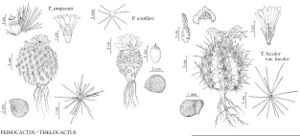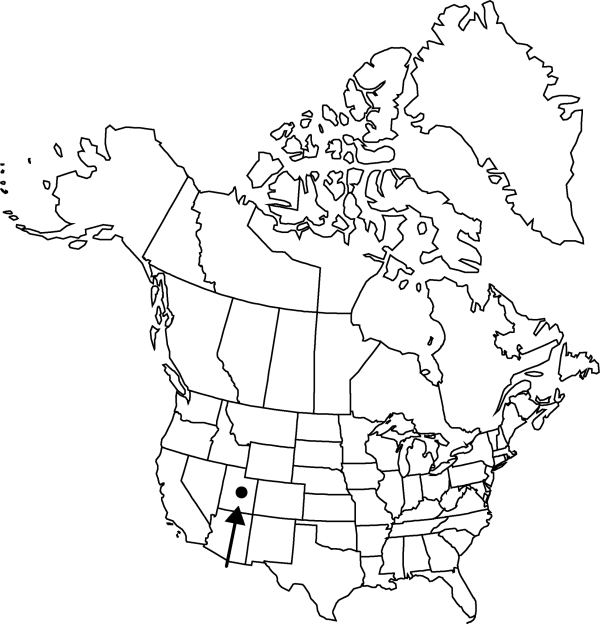Pediocactus winkleri
Cact. Succ. J. (Los An geles) 51: 28, figs. 5–8. 1979.
Plants usually unbranched, sometimes clumped. Stems subglobose to obovoid, 3.9–6.8 × 2.7–5 cm; areoles elliptic to circular, lanate (rarely glabrate). Spines smooth, relatively hard, all radial, 8–14 per areole, spreading downward, white or whitish to tan, 1.5–4 mm. Flowers 1.7–2.2 × 1.7–3 cm; scales and outer tepals minutely toothed or entire and undulate; outer tepals peach to pink with reddish brown midstripes, 10–15 × 4–6 mm; inner tepals peach or pink, oblanceolate, 12–16 × 3–5 mm. Fruits green, drying reddish brown, without scales, turbinate, 7–10 × 8–11 mm. Seeds black, to 3 × 2 mm, shiny, papillate and rugose.
Phenology: Flowering early spring.
Habitat: Great Basin desert scrub, pinyon-juniper woodlands, desert pavements of cobble, pebble, or fossil oyster shell and gypsum soils
Elevation: 1500-2100 m
Discussion
Of conservation concern.
Pediocactus winkleri (and P. despainii) were recently combined with P. bradyi. Analyses of chloroplast DNA sequences (J. M. Porter et al. unpubl.), however, provide strong evidence of a close relationship among P. winkleri, P. despainii, and P. simpsonii, not P. bradyi. By contrast, P. bradyi is more closely related to P. sileri and P. peeblesianus. The morphologic distinction between P. winkleri and P. despainii is much more tenuous than the key and descriptions indicate (see comments under 9. P. despainii).
Pediocactus winkleri is in the Center for Plant Conservation’s National Collection of Endangered Plants.
Selected References
None.

